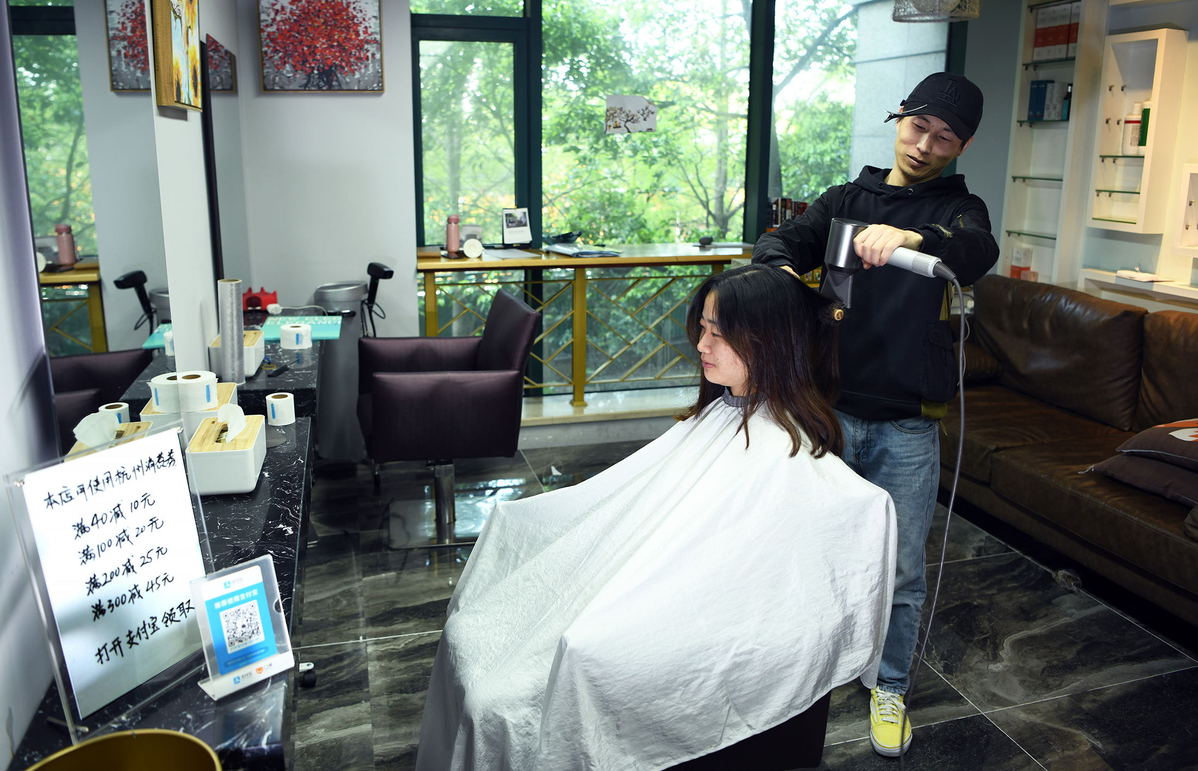Shoppers targeted in bid to boost spending
By MA ZHENHUAN/ZHAO XINYING/DU JUAN | China Daily | Updated: 2020-06-16 10:05

Cities follow suit
Distribution of the vouchers has been put on hold in Hangzhou since the end of April, after six rounds of applications. However, they are still being issued in other cities in Zhejiang, including Ningbo and Shaoxing.
Across the country, more cities are attempting to spur economic development by issuing the vouchers.
Early last month, Wang Bingnan, vice-minister of commerce, said at a news briefing that vouchers worth a total of more than 19 billion yuan had been handed out in more than 170 cities to boost consumption.
Such initiatives are still underway in many places. Xi'an, capital of Shaanxi province, distributed its first batch of e-vouchers worth a total of 5 million yuan in the middle of last month. Issued on a first-come, first-served basis, stocks were exhausted within 10 minutes of the vouchers being released on May 19.
Responding to consumer enthusiasm, the city issued a second batch, also worth 5 million yuan in total, on June 10. Again, supplies ran out within minutes.
In Lhasa, capital of Tibet autonomous region, the authorities plan to distribute vouchers worth a total of 30 million yuan in three batches-from June 6 to July 20-to people who shop in the city during this period.
There are three types of voucher in Lhasa: those for use at supermarkets; universal ones for purchases at all shops in the city except for supermarkets; and "lucky vouchers", which are distributed through a random draw. Those who receive the latter type can save 80 yuan on purchases involving more than 300 yuan.
More effective
Some people have questioned why local governments chose to issue vouchers online, rather than distribute cash to people.
Pan Helin, executive dean of the Digital Economy Academy at Zhongnan University of Economics and Law in Wuhan, Hubei province, has the answer.
























